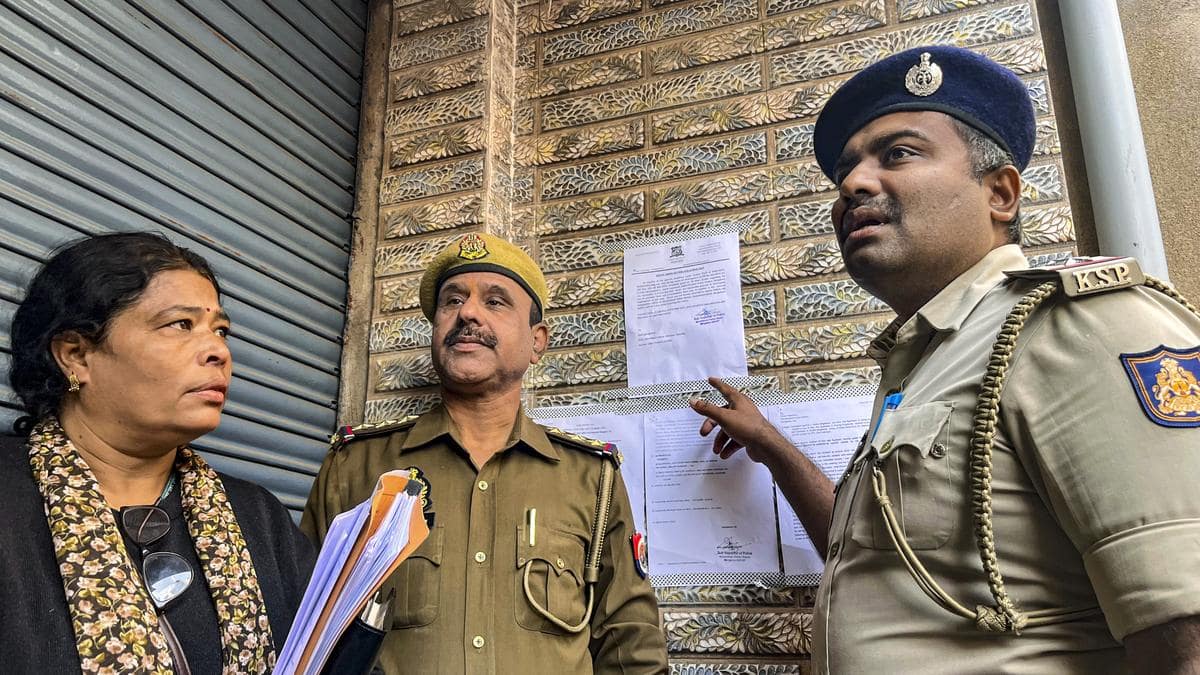The suicide of Bengaluru-based AI executive Atul Subhash has unraveled a grim tale of alleged harassment, financial demands, and a family’s flight from justice. Bengaluru police are intensifying their search for the Singhania family, accused of abetting the techie’s death, which has stirred debates on the pressures of legal and personal disputes.
A shocking video has surfaced on social media showing the in-laws of AI engineer #Atul Subhash fleeing their home in Uttar Pradesh's Jaunpur after Bengaluru police arrived to investigate the suicide case.pic.twitter.com/Yn3FoYvoNk
— 👑 SHAIKH 👑 (@azharfru1) December 12, 2024
Police Manhunt in Jaunpur
A Bengaluru police team reached Uttar Pradesh’s Jaunpur on Thursday to locate Atul Subhash in-laws. However, their efforts hit a dead end as the Singhania family’s houses were locked, and their phones remained unreachable. Local police inspector Mithilesh Kumar Mishra confirmed that Atul’s mother-in-law Nisha and her son Anurag left their residence on a motorbike the previous night, citing a health emergency.
When questioned by reporters, Anurag claimed his mother was unwell, but neighbors revealed that the family had only moved into the area two months ago. Notices have now been pasted on the house’s entrance, urging the family to cooperate with the investigation.
Allegations of Harassment and Financial Demands
Atul, 34, took his own life on Monday in his Bengaluru apartment. According to his 24-page suicide note and an 81-minute video, he accused his estranged wife Nikita and her family of relentless harassment. The FIR filed by Atul’s brother detailed allegations that Nikita’s family demanded ₹3 crore to drop police cases against him and an additional ₹30 lakh for visitation rights to see his 4-year-old son.
Atul’s lawyer Dinesh Mishra stated that the techie’s financial situation was strained. Despite earning ₹84,000 monthly, he was ordered by the Jaunpur family court to pay ₹40,000 per month as child maintenance. While the court ruled in accordance with the law, the steep financial obligation likely added to his distress. Mishra emphasized that Atul never showed signs of aggression or instability in court but may have felt cornered by mounting financial and emotional pressures.
A Troubled Marriage
Atul and Nikita’s marriage, which began in 2019 through a matrimonial site, quickly turned turbulent. According to the suicide note, Nikita moved to Bengaluru after staying with her in-laws in Bihar for just two days. The relationship soon spiraled into legal disputes involving divorce, child custody, and financial demands.
In his final note, Atul accused his wife’s family and even a family court judge of bias, describing their actions as blackmail and extortion. Despite the challenges, legal experts pointed out that Atul had options to appeal the maintenance order in higher courts, a route he ultimately did not pursue.
Legal and Ethical Questions Raised
The Singhania family, including Nikita, her mother Nisha, brother Anurag, and uncle Sushil, now face charges of abetment to suicide. As Bengaluru police work alongside their counterparts in Jaunpur, the case raises significant questions about the judicial process, societal expectations, and the emotional toll of prolonged legal battles.
Broader Implications
This tragedy underscores the need for systemic reforms in how matrimonial disputes and related financial obligations are handled, particularly to prevent extreme outcomes like suicide. With the winter session of Parliament underway, advocates are urging lawmakers to address gaps in family law to ensure fair and humane resolutions.
This news report is curated with insights from multiple reliable news sources.




















